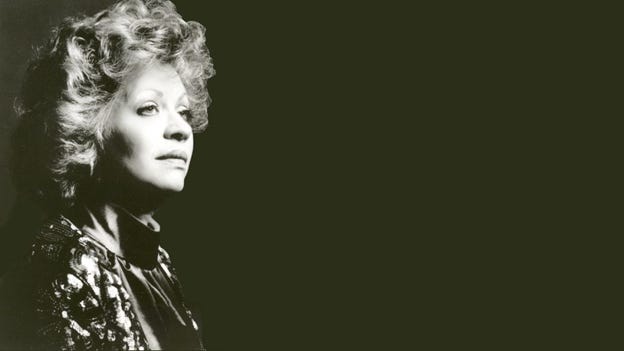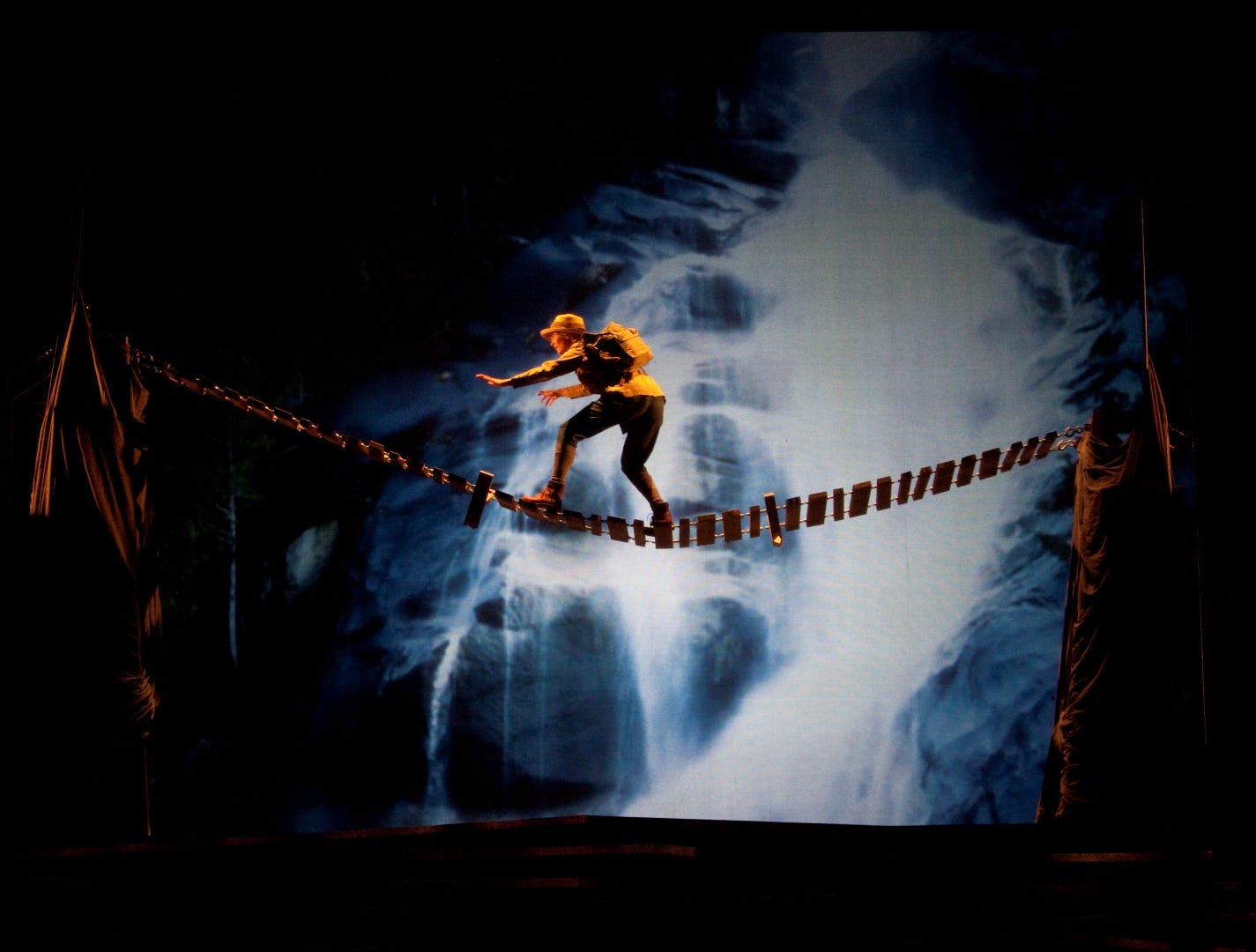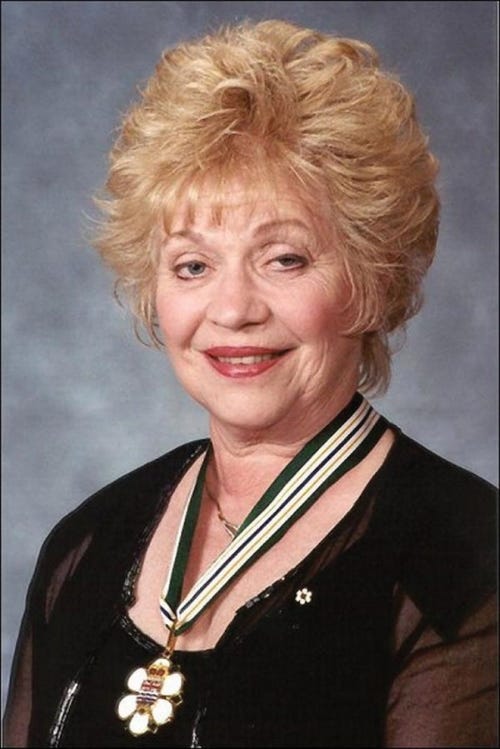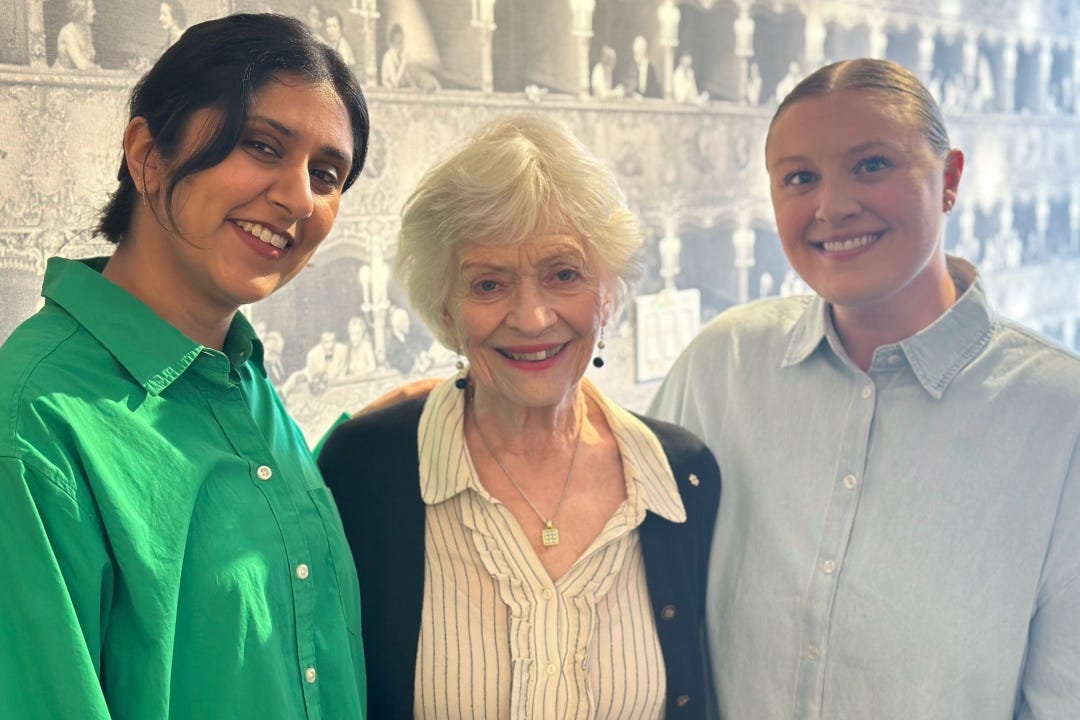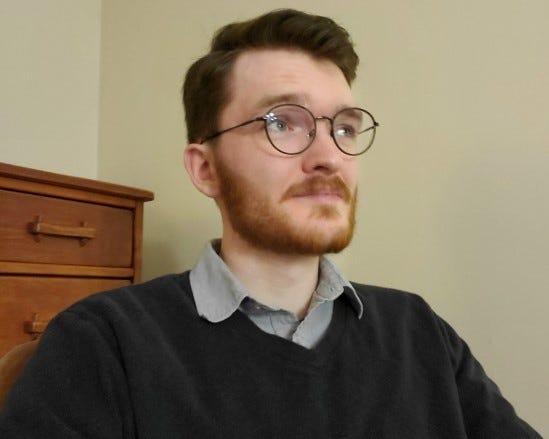Finding Voice, Passing the Torch
Canadian opera icon Judith Forst and Yulanda M. Faris Young Artist Simran Claire share the experiences of being a mezzo-soprano and wearing the pants onstage.
You can also download the podcast on all major platforms including Apple Podcasts and Spotify.
Welcome to Inside Vancouver Opera. My name is Ashley Daniel Foot. As International Women's History Month wraps up, we had the chance to have a conversation with the iconic and incredible Judith Forst, an Officer of the Order of Canada, and member of the Order of British Columbia, and of course, a Vancouver Opera star from the very beginning.
Judi was joined in conversation by up and coming young mezzo-soprano and Yulanda M. Faris Young Artist Simran Claire.
Now you're both mezzos. Is this true?
Simran Claire:
That's true.
Judith Forst:
Sure. The good people are.
Simran Claire:
Yup, exactly.
Judith Forst:
Didn't you know that? We're much easier to live with.
Ashley Daniel Foot:
You both already sang in some amazing places. Judi, you sang all over the world, including at the Met. Simran, you sang at Glimmerglass Festival, and for former Supreme Court Justice Ruth Bader Ginsburg.
These are some, both of you, heady, heady places to perform. What does it feel like, to reach those levels? And how do you feel about continuing to do that?
Simran Claire:
I don't feel like I've reached the levels that Judi has, not at all. I still feel like a very small fry. But at the same time, Glimmerglass was a huge deal for me, when I got accepted there. And the opportunity to study in America, I had never been exposed to these American singers and the American training.
I think, just because there's more of it, and it's something about an American mentality, I don't know how to say it. There's more fire in the singers, and so, it put a fire under me, as well. I think I learned what it meant to be-
Judith Forst:
Be less Canadian.
Simran Claire:
Yeah, exactly. Be less polite, own myself a little bit more.
Ashley Daniel Foot:
Judi, I want to come to you for that, because you had discovered this transition too into America. What was that like? What did you discover from that?
Judith Forst:
When we moved to New York, it was a very different path, because I didn't do Young Artists programs. There wasn't really very much of that, at that time. I was given this contract at the Met, I think 42 or 48 parts, the first year to cover or sing. And from one line to a whole role, like the Page in Rigoletto, to the Rosina. So it was nonstop learning. Doing one line is worse than doing a whole role, because you have to know where to put the one line.
And so, to learn all the operas, I didn't have time to think about anything except, you worked six days a week, you had one day off. You were given coaches all the time for everything.
So you were just working all the time and then studying at night to figure out your parts for two months down the road. So it was hard, really hard.
And after, I don't know, six years, we moved back here.
Ashley Daniel Foot:
But you continued to work incredibly hard, performing everywhere.
Judith Forst:
Yes, from here, but then, by then, I was doing my repertoire at that time, which included a lot of pants parts, and then moving to the next stage, which was starting into the Bel canto period, and I was fortunate with mentors, Irving Gutman, Latvi Mansouri, people that saw the next step in me. Don't think I didn't fight them too on it, because I had a good healthy sense of fear about some of the parts.
Ashley Daniel Foot:
What were you afraid of most?
Judith Forst:
That the parts were maybe not where I should be going, but if enough people ... All of a sudden there were a lot of people asking me to sing, Seymour in Anna Bolena. And then, something rang a bell, and I thought, "Well, wait a minute. That's odd, so it must be right."
But over the years, I had to really know when something wasn't right. Because my managers, Zemsky Green, would frequently present me with an offer, and I'd say, "But no," or I'd be kind of tempted, and I'd spend a week at the piano with the part, and do what I called the production week.
So I'd sing it every day, as if I was in production week, and see how shredded my voice was at the end of the week. Or there would be a voice from my kitchen saying, "Yeah, I think that better go back on the shelf," and that would have been Graham [Judith’s Husband].
Ashley Daniel Foot:
Simran, how did you discover your vocal range, and how did that journey come about for you? Did you struggle in similar ways that Judi did, or was it a different reality?
Simran Claire:
Yes, the answer is yes, I definitely struggled. For me, actually, it started, because I've always had a higher mezzo voice, as well. I sing high notes, but I can't sit up there.
When I started studying, I had this notion in my mind that being a soprano meant that you had a superior instrument, so I always wanted to be a soprano.
Ashley Daniel Foot:
Wild.
Simran Claire:
Yeah. I had this hangup in my mind, where I thought that maybe I had some kind of deficiency in my voice, which is why I wasn't a soprano, and that took a while for me to unwind, and unwork and unlearn.
I'm definitely very happy to be a mezzo now. I've accepted this and embraced it, I think, I love the repertoire that I sing, but there have been people who question whether I'm singing the right repertoire. I don't think they're correct.
I think I know myself, and I know that I'm singing what is correct for me, but it's true. Sometimes people hear an ease in the top or something, and they think that you can just-
Judith Forst:
Even really important people.
Simran Claire:
Yeah, exactly.
Judith Forst:
Richard Bonynge, after doing Norma with him, he said, "Well, you could sing this part." And the other thing, he said, "I wish we could have done Boheme together. You would've been a beautiful Mimi."
I said, Richard, "I was a Musetta, and I could never have got through all that passaggio pianissimo stuff."
Simran Claire:
That's the thing. Yeah, exactly.
Judith Forst:
I'd have choked. Absolutely. You do know yourself. I was a lyric mezzo. A lyric mezzo usually means pants roles. Certainly for me, it is where I started. I did every, if there were pants there, I was wearing them.
That's really why I took the first Musetta, was to get out of those wretched pants. But I mean, some very nice pants, having said that, Octavian is dressed magnificently ...
Simran Claire:
Very true.
Judith Forst:
And so forth, but usually it was this, Tebaldo, Siébel, Stéphano, wonderful moments, and the thing is, that you have a wonderful aria, but you don't carry the show, so they'll give you those parts as a young singer. And that's why I went into the Met, because I fit the pants.
I was in the Met auditions, they took me out of the auditions, and said they were going to give me a contract. And then, they said, "We need you to stay another day to sing to Mr. Bing by yourself in the house."
So I stood on the stage, didn't know squat, and sang, and he was all upstairs in the second, third tier up there, walking all around, and then, they said, "Well, we'd like you to be here, full year round."
They were called Plan Artists, but I knew, I'd heard that when I got there, that they had lost a mezzo, and I could do it because I wasn't carrying a show.
But then, I mean, you outlive your usefulness, your age, and so you don't fit the pants. I mean, you fit them, but you don't look like a young ingénue…
Ashley Daniel Foot:
Judi, I think you still got it.
Judith Forst:
Yeah, nice Ashley... Nice save.
But your voice is starting ... You're getting older. What is happening with the instrument? They would have kept me there, and I would have kept doing the same stuff. Not those parts, but maids and whatever was available.
Or I left, which is what we did, and I started moving into my repertoire, which, the next stage was the Così fan tuttes, Rosina. I did the Cherubinos, which I hated. I didn't fit. I did them all over, but I was never, my friend Frederica von Stade, loved doing it, because she sat again in a different place.
She sat a little bit higher, but she didn't go as high. She would say to me, "How do you sing all those high notes?!" I said, "Well, I don't know how you don't corpse, and your larynx isn't at your back teeth, doing all those Cherubinos!"
They would always want me to sing quieter. I can't sing quieter. This is as quiet as you're going to get, and so then, what do you do next?
Well, that's where Irving and Latvi came in, and then they said, "It's time to try Octavian, and it's time to move into the bel canto period." Then you try it out, and yeah, my instrument in my 30s would handle that.
Then what happens? You get to 40, okay, you're still singing well, but Rosina, that ship's sailed. As a lyric mezzo, then is when you start treading water, trying to figure out, where is the next step?
I was lucky my instrument moved into Salome, that Herodias. It moved into the Janáček, where the theatre started to become important. And I was lucky to move into those parts by 50, so I could prolong my career, but it was knowing when to let go of parts.
Ashley Daniel Foot:
The canon is what it is, and of course, we're wrestling with the canon, we're using the canon, we understand. But you have always championed new music, right from the beginning.
Judith Forst:
Yeah, because of my musical strength, the composers at UBC would just always ask me to learn whatever they had written, and I did it. I did all kinds of it, and then, one summer, Leonard Stern and Cathy Berberian came to UBC, and did a concert, and I got to sing for them.
She, at that time, said if I would come to Italy and live near her, or with her, and to start doing all, like the Schoenberg Hanging Gardens, and all this stuff. And he said to me quietly, "Don't do it." And he said, "Learn how to sing Mozart before you start doing all contemporary music." Best advice I ever got, hardest, but because singing Mozart is particularly tricky.
Ashley Daniel Foot:
Just a little, right?
Judith Forst:
Yeah, just a little. I had to really learn a bel canto technique, before I could have success in contemporary music, because I had to understand registers in how my instrument worked, how to sing in a healthy fashion, no matter what they asked me to do, or whether I was standing on my head, or whatever.
But if you don't have a solid technique, you cannot take a flyer. Because you have to come back to, "How healthy are my chords?" So I figured that out, and then, all the new music that came my way, I was very fortunate to get it.
I loved it, I loved working with composers, but it was always tricky. Because I always say, "If you ask for a change with a composer, it's like asking them to throw out their firstborn child."
However, it didn't stop me, and I did many times, even over telephones, I would sing to composers. "If you write it this way, this is what you're going to get. If you put it here, then I can give you diction."
Ashley Daniel Foot:
That's amazing.
Judith Forst:
"If you do these alterations, this is then what you'll get. I can offer you four options, but if you write it that way, you get one, and you'll be lucky to get that."
Because they frequently would ask, "What is your range?" And they'd write it all at the bottom of it, or all at the top, and you'd have to gently massage it into somewhere that's doable.
Yeah, I can go that low and yes, I can certainly go that high, but not all the time. So when I had the opportunity for the Vancouver Opera to do Lillian Alling ...

Ashley Daniel Foot:
Yes, I wanted to talk about this opera.
Judith Forst:
That was wonderful, because I went to a reading of it. I didn't do the workshop. They had another wonderful singer, and John Estacio had worked a lot with another Canadian singer. We were both mezzos, but this is Beth Turnbull, and her voice sits a third lower than mine.

So when I first heard it, I said to John, "I love it, but I can't sing it. I'll tell you right now, I can't sing it. Because it's sitting just a third too low." And he looks at me. "Oh."
So then I got the score in Banff one summer, while I was working there, and Andrea Grant played for me, and we sang the new stuff through, and John Murrell (librettist) and John Estacio (composer) were there, and I said, "Okay, now I can do something. I know what to do with this now."
Ashley Daniel Foot:
They put it up a third, right?
Judith Forst:
Well, everything was moved up.
Ashley Daniel Foot:
Oh, how thoughtful.
Judith Forst:
Yeah, yeah, yeah. Then I could do it, and then we ended up with a very good piece.
Ashley Daniel Foot:
Stunning, one of our favorite productions ever, at Vancouver Opera.
Judith Forst:
Oh, my Heaven. To this day, after all these years, people still talk about that opera to me, that meet me randomly, and how it resonated with them that they'd all had to deal with an elder going to a care facility, and all the things it dealt with. And it was interesting.
Ashley Daniel Foot:
There's no doubt that our industry, when you look at conductors, the numbers of female conductors are way too low. There just isn't a number that's good right now.
How do you think we can address that in our field? How can we welcome more women to the podium, and how important is that for the kinds of stories and operas that we can then do?
Judith Forst:
Before we can even have that happen in Canada, we have to get more work for women to do, or men, because we're in short supply for venues, for things happening in the art form that we do.
It seems to be going backwards, to me, all the time in our country. That's why you're talking about being at Glimmerglass, and I see so many more opportunities in America, because there's so many more, from very tiny companies, to midsize, to the big ones. We don't have enough in our country.
If they're qualified, they need the opportunity. That's as simple as that. But you have to remember that there's one conductor in every show, only one.
Now in some operas, something like Così fan tutte, there are six singers, some, there are twelve singers, but only one conductor, one director. It's a limited job, at the best of times, but it's the same for our parts as singers.
You just have to be as good as you can be, and take advantage of every opportunity, and look for opportunities. But right now, it's hard. There's just not enough.
Simran Claire:
Yeah, that's right. I know that Tapestry has a women conductors incubator program, and I think that's wonderful.
It's providing opportunity, like placement. It's providing a new type of role, like an assistant conductor, or a répétiteur, or a place for these aspiring women conductors and emerging women conductors to work, and that's exactly what you're saying, Judi, there is only one role for a conductor in each opera - and how many major opera companies are there in Canada?
You can count them on one hand.
Ashley Daniel Foot:
You really can.
I'd love if each of you could discuss a time when you had to advocate for yourself, or maybe other women in the workplace. Tell me a little bit about that, and how you did that. And I'll start with Judith.
Judith Forst:
I don't remember ever not advocating for whoever I was with. When you're in a cast, I always felt that you were there to work together. This was about an art form. You were trying to do a wonderful performance. In our business, for the most part, we got on with it, because we had to have all the parts covered.
And so, we did it. I've seen that over all the years I've been doing this, and I just think of a son and a daughter, and they were raised to be human beings. That was their job. Treat everybody as you want to be treated, and let's get on with what we're doing.
That sounds very simplistic, but if that's the core, and then you build from there, and if there's injustice in a room that I'm in, I deal with it then.
Simran Claire:
That's great, yes. I'm struck by what you're saying about this art form being a collaborative one, and that each cast is a team, it's a unit. We can't exist without the other, and the show cannot go on.
It feels, often for me, kind of isolating or individual, because you spend so much time by yourself in a practice room, or working on your own technique, your own skill set, but it's true. When the rubber hits the road, I can't exist without everybody else around me onstage, and in the rehearsal space.
Judith Forst:
And it's not just the people onstage. It's everybody that is doing what they do to make it happen onstage. And that is something that is taught at school, at UBC, because every student there has to learn the business. You have to do something backstage, and so, by knowing what goes into getting you out there, so you can do your work, you're very appreciative. And you honour every talent.
Ashley Daniel Foot:
What an opportunity for us to listen in, as two incredible mezzo-sopranos compare notes and reflect. Hope you enjoyed the conversation as much as I did, and thank you all for listening.
As always, I'd like to thank our producer, Mack McGillivray, and associate producer, Tabitha Brasso-Ernst.
I'll see you at the opera.
Judith Forst:
…We were touring Anna Bolena and I was hooking a Christmas tree skirt. I’d get up to do my parts and she’d take over. So I have a Christmas tree skirt somewhere in a box that Joan Sutherland worked on.
Ashley Daniel Foot:
Oh that’s amazing!
Simran Claire:
Oh my gosh!
Judith Forst:
That’s my claim to fame and I’m sticking to it!
Judith Forst is a mezzo-soprano and one of Canada’s most prestigious and influential voices. She is known worldwide for the musical and dramatic intensity of her performances. Judi was raised in Coquitlam and has gone on to perform at some of the most important opera houses around the world, including the Metropolitan Opera, La Scala, and San Francisco Opera. Judi still calls B.C. home and has had memorable performances at Vancouver Opera, including as Klytemnestra in 2003’s Elektra, as the titular role in 2010’s Lillian Alling, and as Mrs. DeRocher in 2017's Dead Man Walking.
Judi was appointed an Officer of the Order of Canada in 1991 and a Member of the Order of British Columbia in 2001. The City of Port Moody granted her the freedom of the city in 1992.
Simran Claire is a mezzo-soprano from Surrey, BC. She is a graduate of Calgary Opera’s McPhee Artist development program, performing as Flora in La traviata and the Teacher in The (R)evolution of Steve Jobs. An alumnus of UBC, the Glimmerglass Festival, The Banff Centre, and Pacific Opera Victoria’s CEAR, Simran is also interested in creating original work. Her “utterly moving” (Opera Canada) narrative recital film Dadima was featured by CBC Music and Global TV.
Inside Vancouver Opera is hosted by Ashley Daniel Foot, Vancouver Opera’s Director of Engagement and Civic Practice. Boundlessly creative and fascinated by the way that art is created and presented, Ashley has guided arts organizations across Canada to craft messages and tell unique stories.
At Vancouver Opera, Ashley carefully develops all programming that takes place off the mainstage and looks for unique and unexpected ways to highlight the power of opera in the community. He also manages all education, community partnerships, and guides the company’s commitment to justice, equity, reconciliation, and diversity. He’s particularly proud of his recent collaborations with with the Vancouver Public Library, BC Alliance for Arts and Culture, Vancouver Art Gallery, and Rumble Theatre. He is also the co-chair of the City of Vancouver’s Arts and Culture Advisory Committee.
This episode was produced with help from Associate Producer Tabitha Brasso-Ernst. Tabitha is a classical singer whose performing has now expanded across Canada and beyond. After studying in Quebec, Tabitha was also awarded the silver medal in the national final of the Canadian Music Competition. Recent engagements have been appearing as Zita in the season finale of Colorado’s OTR production of Gianni Schicchi, performing at VIFF’s premiere of Seven Veils hosted by Vancouver Opera, and as a regular oratorio guest soloist with numerous orchestras and choruses. As an ensemble singer, Tabitha performs with JUNO-nominated professional ensemble musica intima. She also serves as the voice coach for the Vancouver Youth Choir.
Inside Vancouver Opera is produced by Mack McGillivray, an audio producer creating shows for radio and podcast. He is passionate about cultivating local community and a lifelong lover of opera.




